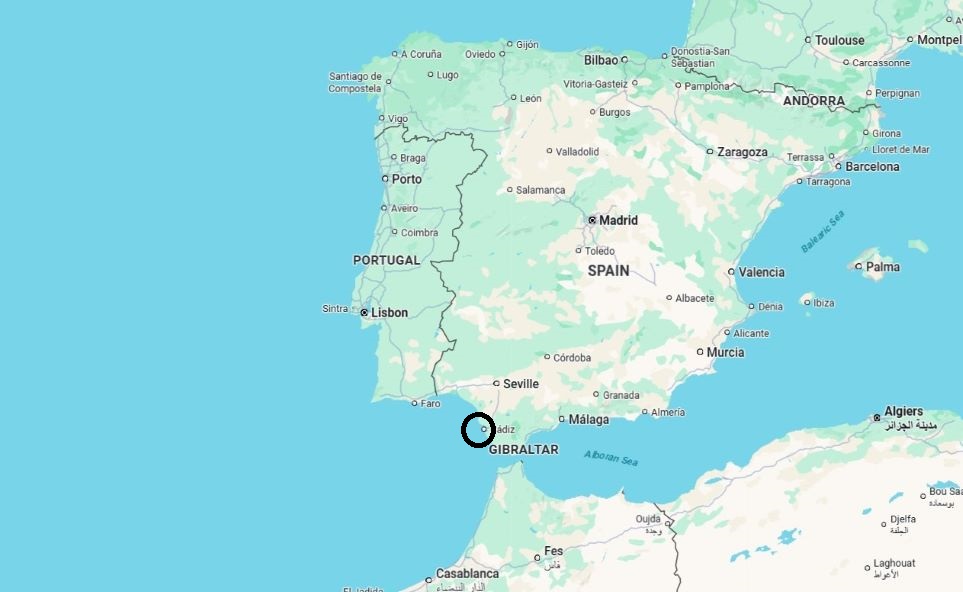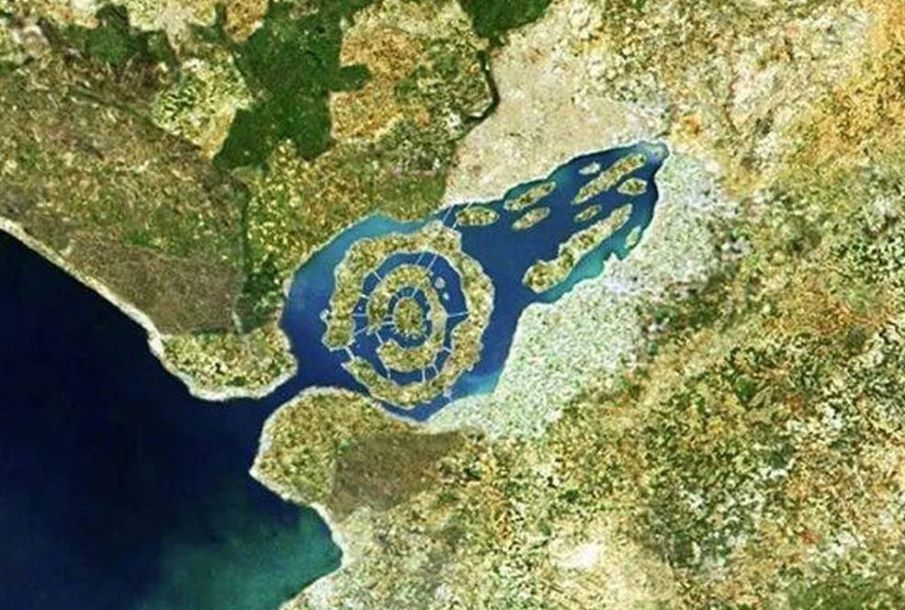Researcher claims ruins of Atlantis are two miles off Spanish coast
A bold new claim is stirring debate in both archaeological circles and the public imagination: Michael Donnellan, an archaeologist and filmmaker, believes he may have discovered the ruins of Atlantis just two miles off the coast of Cádiz, Spain.
Based on eight years of research, sonar scans, and more than 20 underwater dives, Donnellan says the submerged site matches Plato’s ancient descriptions “verbatim” and could be the remnants of a sophisticated prehistoric civilization wiped out by a cataclysm 11,600 years ago.
More to read:
ESA satellite discovers lost continents beneath Antarctica’s ice
“It matches everything Plato says verbatim,” Donnellan told journalists. “We know that perfectly well to this day that Gades is the modern-day Cádiz.”
At a recent presentation during the Cosmic Summit in North Carolina, Donnellan revealed stunning sonar and LiDAR images that show enormous concentric circular walls — some over 20 feet tall — on the seafloor near Cádiz, a city known as the oldest in Western Europe.

Michael Donnellan had been searching for Atlantis for eight years. Credit: Ingeniofilms
The layout, Donnellan argues, aligns exactly with the ancient city of Atlantis as described in Plato’s Timaeus and Critias. At the heart of these rings lies a rectangular structure oriented north-south, which he believes is the Temple of Poseidon.
“The layout matches perfectly with Plato's descriptions,” he said, noting sharp right angles, cut stone blocks, and a canal system. His team recorded countless artifacts, including enormous rectangular stones roughly the size of half a small car, stacked and scattered in patterns inconsistent with natural formation.
More to read:
Jules Verne was right: Oceans are hidden beneath Earth's crust
All these are “hard evidence” that Atlantis has finally been uncovered, the researcher said while teasing the public about his new movie on the topic.
“Upon observation, clearly cut stones are seen stacked one on top of the other,” Donnellan said. “The style of construction, however, is certainly not Roman nor Venetian. And at this distance and depth, it would make this place much, much older.”
Donnellan suggests the damage visible on the outer rings — fractures, collapsed walls, and stones thrown from original positions — could be the result of a massive tsunami, aligning with Plato’s account of Atlantis vanishing “in a day and a night of earthquakes and floods.” He links the destruction to the Younger Dryas, a sudden climate event that occurred around 11,600 BC, the same time Plato gives for Atlantis’ demise.

The location where the ruins were found. Credit: NewsCafe via Google
The site’s location — beyond the ancient “Pillars of Hercules” (now known as the Strait of Gibraltar) — further supports the theory, as Atlantis was said to lie in the Atlantic Ocean, west of the Greek world.
The measured size of the region, the explorer goes on, again aligns with Plato’s description of Atlantis spanning 3,000 by 2,000 stadia, or approximately the size of Nevada.
More to read:
U.S. researchers discover large Maya city in Mexican jungle
While many historians still regard Atlantis as a philosophical allegory, Donnellan hopes his findings will open the door to wider acceptance of its possible reality. He proposes thinking of the site as part of a “great ancient Atlantic culture.”
“Perhaps we should now speak of an ancient Atlantic culture. It's easier to believe when the evidence speaks for itself,” he said. “I think that’s a gateway to letting people slowly, over time, take the word Atlantis much more seriously.”
The full details of the discovery are set to be revealed in an upcoming documentary by his company Ingeniofilms, featuring the underwater expeditions.

After all, Atlantis wasn't a continent, but a city - according to defenders of this theory. Credit: Ingeniofilms
Whether true or not, one fact that contradicts Donnellan’s claims is that the Temple of Poseidon is part of the Ancient Greece culture, which appeared much later, rather than an Atlantis attribute. After all, Atlantis has left no written record about itself.
For this very reason there will be no scientific consensus, though it has undoubtedly reignited global fascination with one of history’s most enduring mysteries. This is not the first time someone claims to have discovered the lost ancient city and civilization – and probably it won’t be the last one.
Let’s see the movie anyway.
PUBLICITATE:







